Published Sep 17, 2019
A 'Star Trek' Fan's Must Read Michael Chabon Books
If you love DS9's "The Visitor" you need to get your hands on 'Wonder Boys' immediately! (...and other gentle suggestions.)
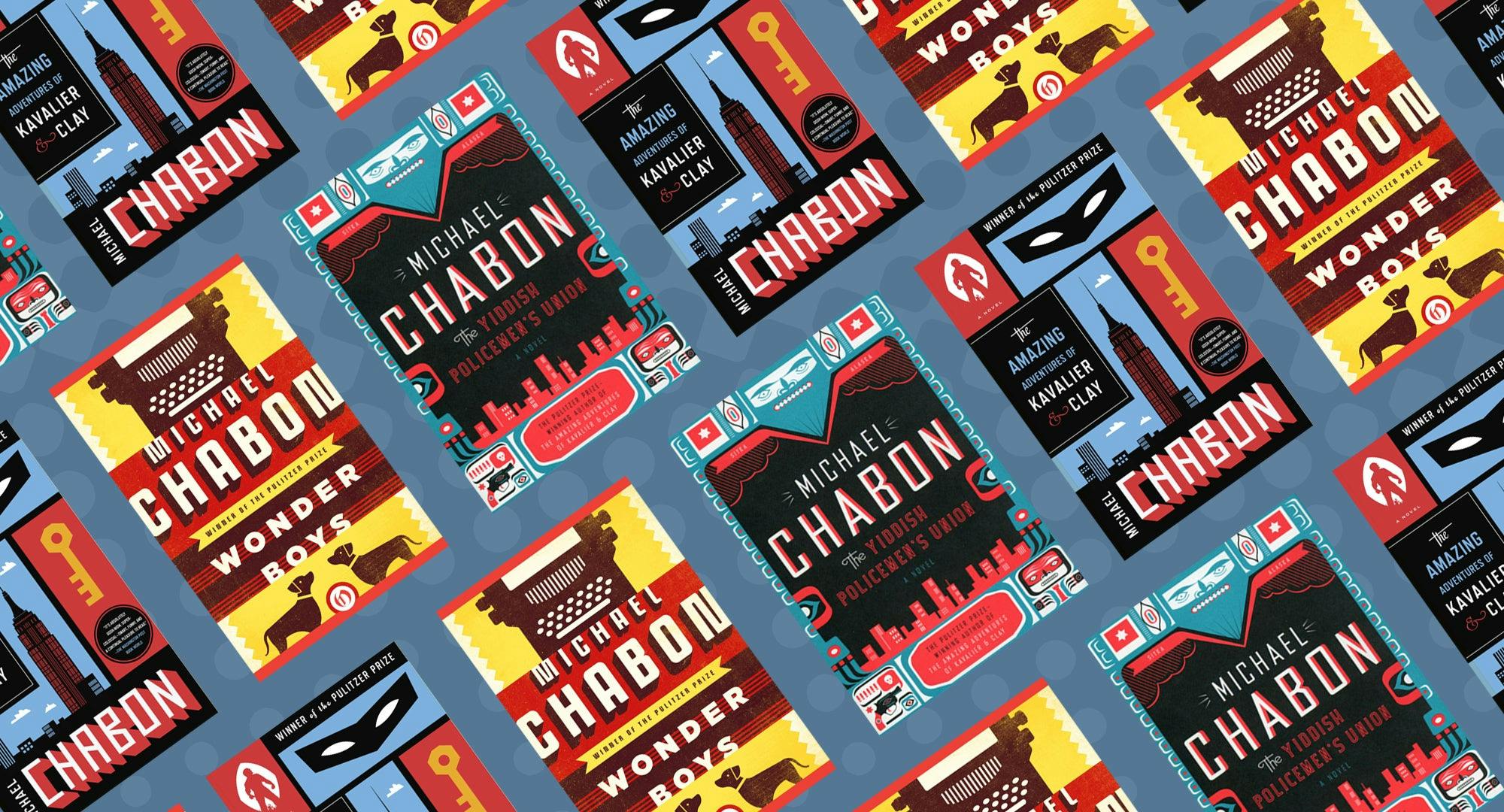
StarTrek.com
For Star Trek fans who desperately miss the 24th century version of the final frontier, the debut of Star Trek: Picard cannot come fast enough. But, other than Sir Patrick Stewart’s return to the titular role that made him famous across the galaxy, perhaps the most exciting thing about the franchise’s newest effort is the addition of Michael Chabon as the lead writer and showrunner.
Chabon is a novelist who holds the unique distinction of being the only person to win both the Pulitzer Prize and the coveted science fiction literature award, the Hugo, for the same book in the same year. If you take a closer look at Chabon’s writing, you’ll find it’s often deeply connected to science fiction and fantasy. In addition to writing the screenplays for Spider-Man 2 and John Carter of Mars, he penned an essay called “The Omega Glory” (a nod to The Original Series episode of the same name) in his 2009 book Manhood For Amateurs. While not all of Chabon’s novels can be classified as science fiction or fantasy, his themes and characters have awesome parallels to Star Trek.
Here are all nine of Chabon’s novels, in chronological order, paired with the Star Trek episodes or films they have the most in common with.
Note: Spoilers for the episodes, films and books have been avoided, for the most part. But, some small revelations might slip in.
“A Piece of the Action” or “Amok Time” — The Mysteries of Pittsburgh
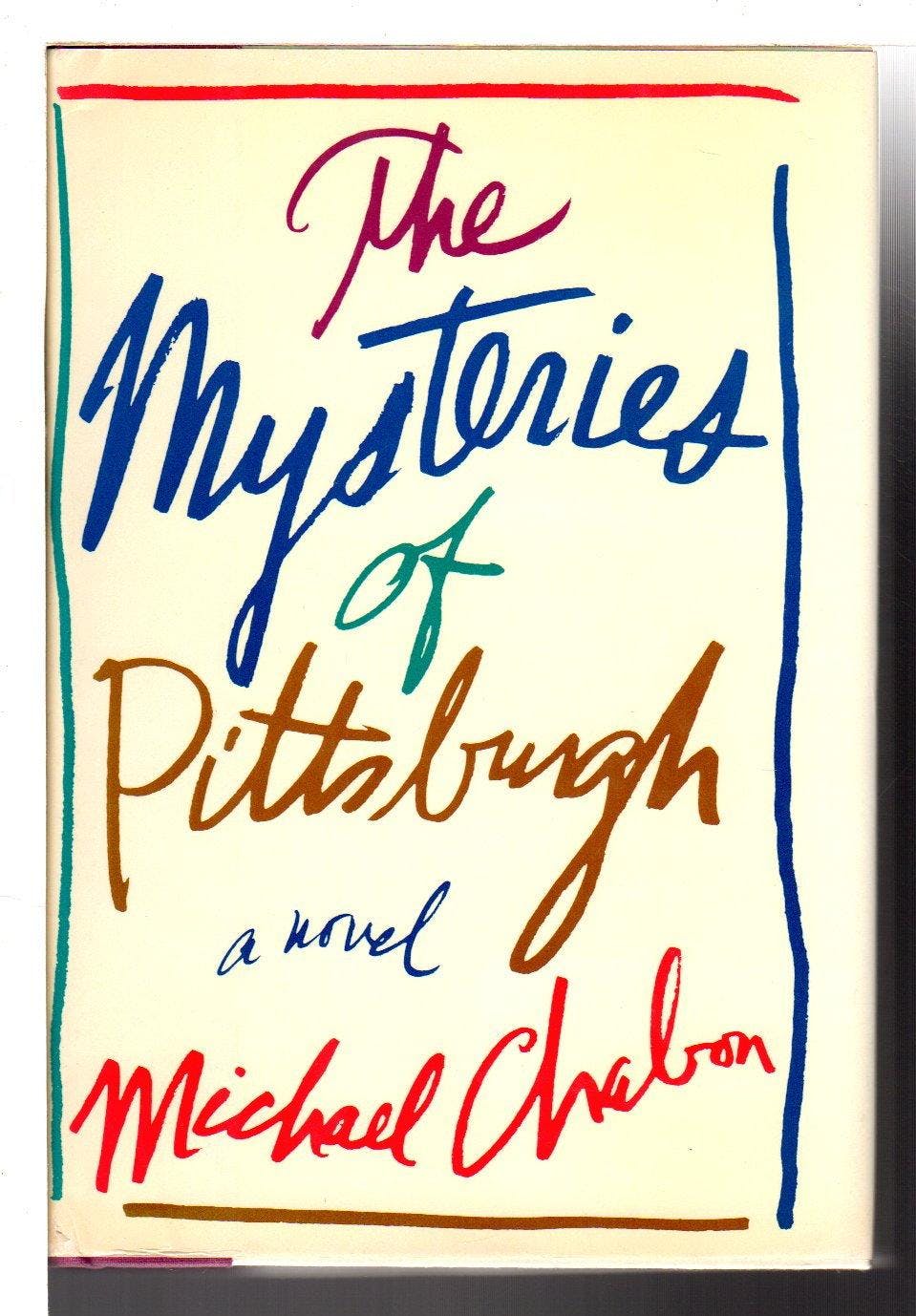
Amazon
Organized crime isn’t necessarily hilarious, but the classic TOS episode “A Piece of the Action” certainly makes the case that in can be. When Kirk, Spock and Bones encounter a planet run by mobster ideals, they eventually realize the best course of action is to...join the mob! Michael Chabon’s debut novel, The Mysteries of Pittsburgh, doesn’t really have the same message, but it does deal with the dangers of organized crime, and highlights a relationship between two young men Art Bechstein and Cleveland Arning. These guys aren’t stand-ins for Kirk and Spock, but if you believe — on any level — that Kirk and Spock’s bromance is stronger than any heteronormative relationships they might have; then you might find The Mysteries of Pittsburgh is also a lot like the classic episode “Amok Time.”
“The Visitor" or “Final Mission”— Wonder Boys
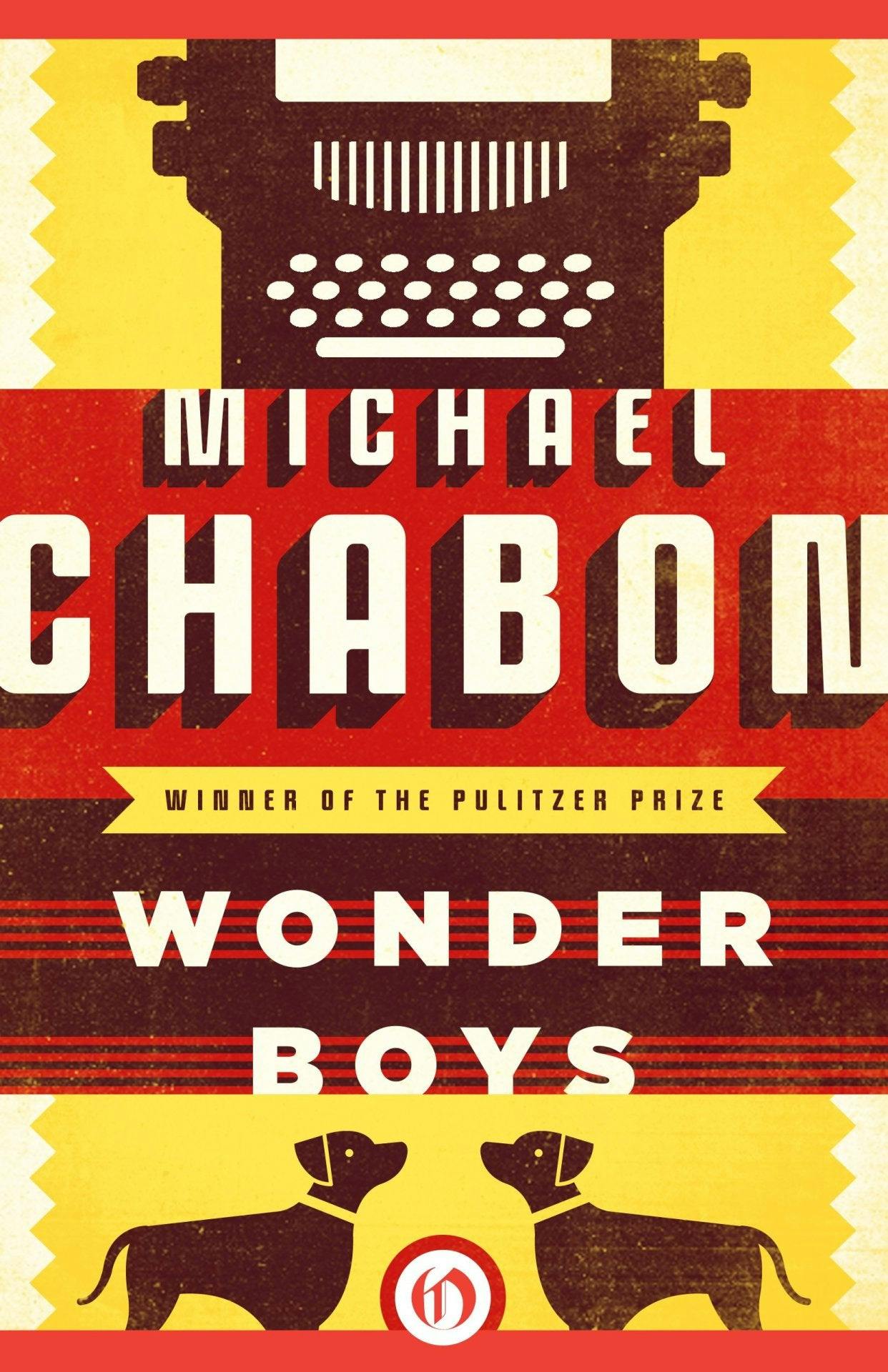
Amazon
At the start of the Deep Space Nine episode “The Visitor,” an adult version of Jake Sisko is about to finish his new novel, but is visited by a young fan and fellow writer. In Chabon’s Wonder Boys, a literature professor named Grady Tripp is struggling to finish an impossible novel, when one of his students, James Leer, changes his life forever. Obviously, the pairing of an older writer working on his final masterpiece and a younger writer looking for all the creative secrets recalls the basic set-up of “The Visitor.” But, because Wonder Boys is also about what it means to grow-up and really accept responsibility, it will also be a great read if you love the Wesley-centric The Next Generation episode “Final Mission.” In Wonder Boys, Professor Tripp and student James take a crazy impromptu road trip; which, really, isn’t that different from Wesley and Picard’s space road trip in “Final Mission.”
“Far Beyond the Stars” — The Amazing Adventures of Kavalier & Clay
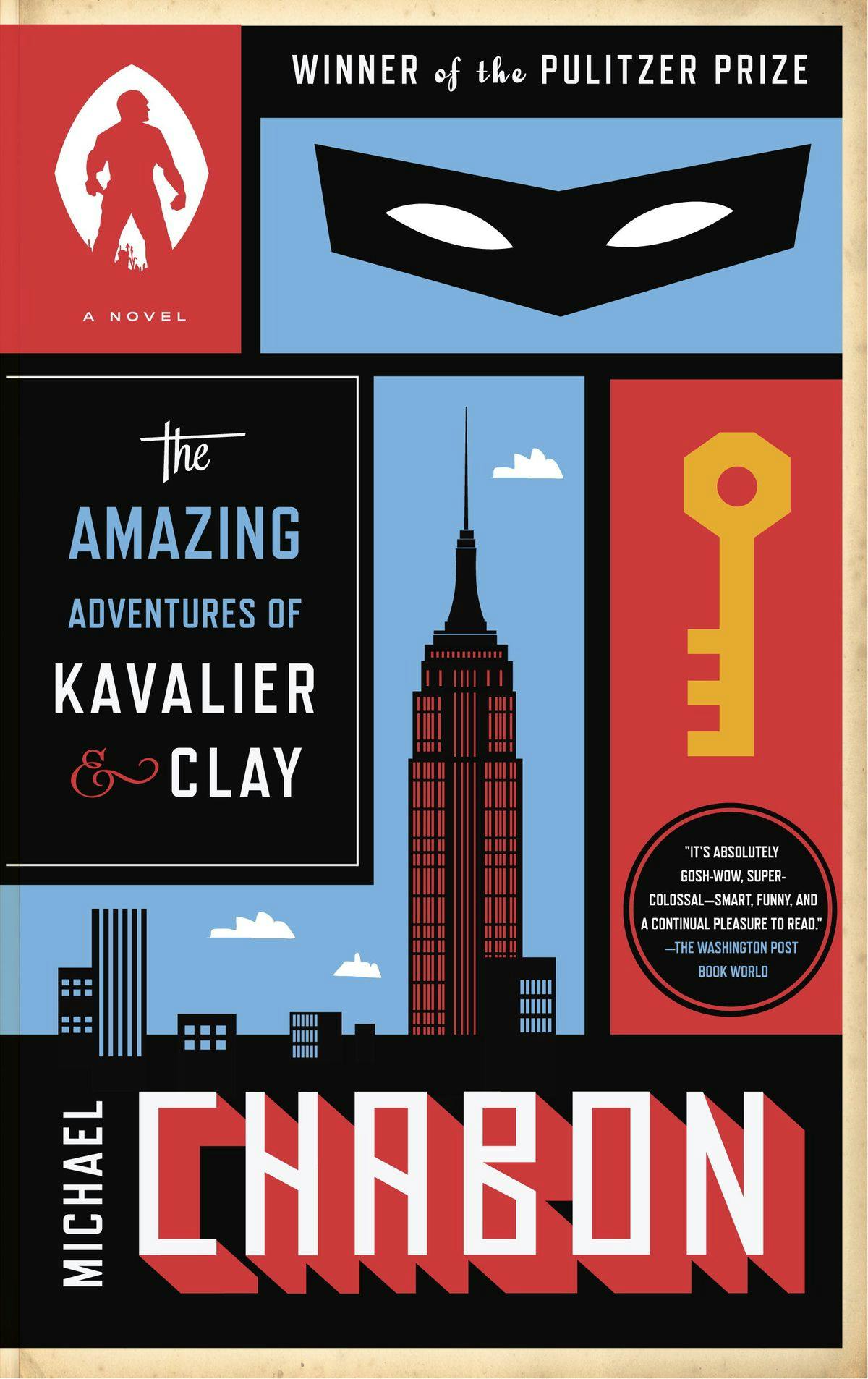
Amazon
Obviously, the enduring impact of the legendary Deep Space Nine episode “Far Beyond the Stars” is the brilliant social commentary the episode makes about racial prejudice not just in the past, but also how those prejudices pervade science fiction and fantasy in the present. “Far Beyond the Stars” also is a smart study of the publishing industry of science fiction and fantasy in the 1950s, and Chabon’s mega-famous novel — The Amazing Adventures of Kavalier & Clay — is a similar exploration of the Golden Age of comic books.
The novel follows Jewish cousins Joe Kavalier and Sammy Clay, an artist and comic-book writer respectively, as they become nearly as influential as Superman creators Joe Shuster and Jerry Siegel. Like “Far Beyond the Stars,” the novel uses the creation of pop fiction as a backdrop to explore themes of religious persecution and also how sexual identity forced LGBTQ people to adopt secret identities in the middle of the 20th century and, sadly, beyond.
“The Emissary” and “Take Me Out the Holosuite” — Summerland

Amazon
Do you love Captain Benjamin Sisko’s obsession with baseball? Do you remember how in the first Deep Space Nine episode ever, Sisko can explain the concept of linear time to the wormhole aliens by explaining the rules of the famous sport? If so, it seems nearly impossible that you wouldn’t love Summerland, Michael Chabon’s YA novel that literally posits that playing baseball, can, in turn, save the entire world. Obviously, the most famous Trek baseball episode is “Take Me Out to the Holosuite,” and high-concept sci-fi/fantasy mixed with baseball is rarely done better than on Star Trek, and in this vastly underrated Michael Chabon book.
“Elementary, My Dear Data” or The Undiscovered Country — The Final Solution
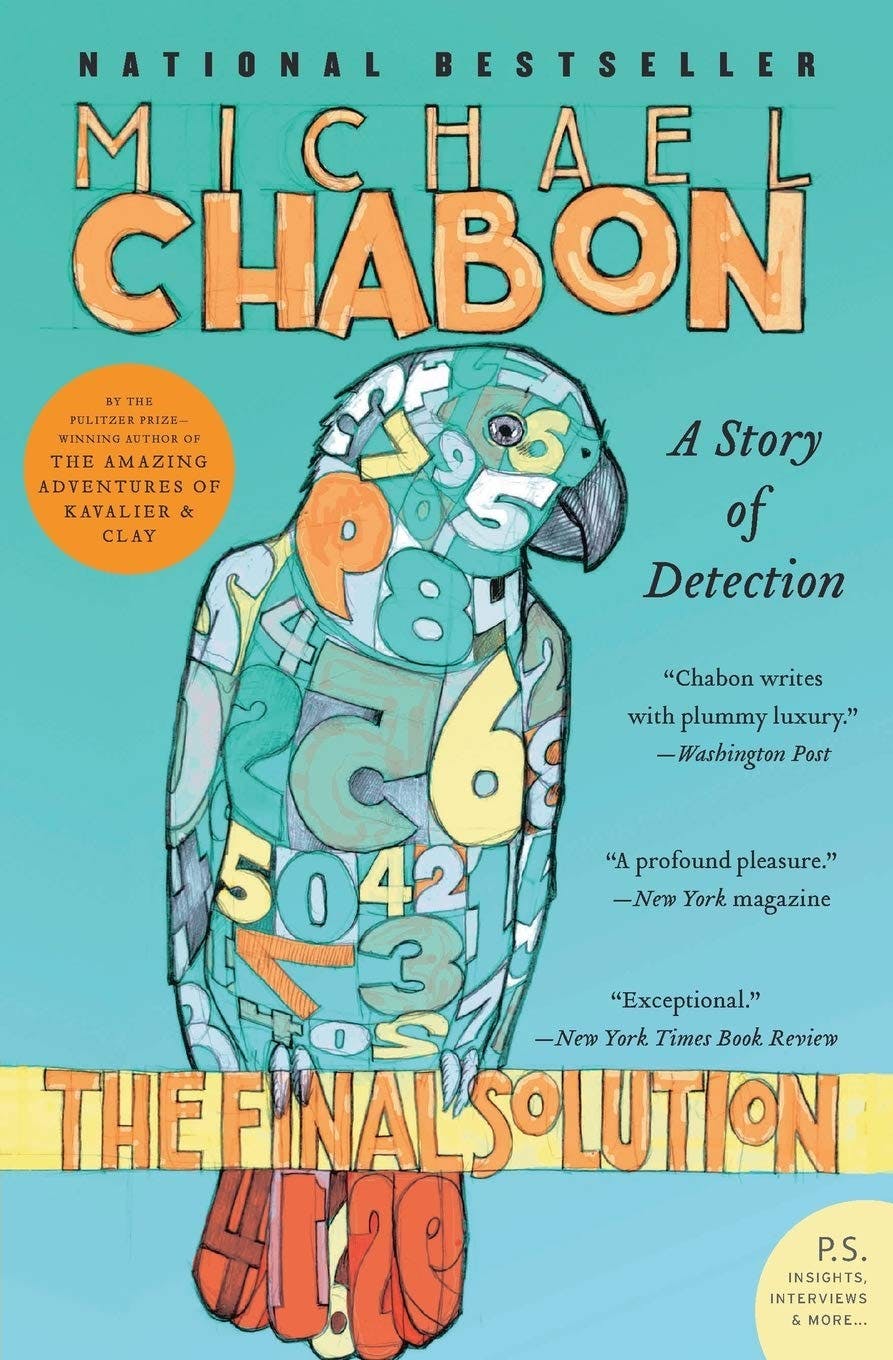
StarTrek.com
Star Trek’s association with great works of literature is well known, but the Trek mega-love of Sir Arthur Conan Doyle’s Sherlock Holmes stories shows up in both classic Trek films and, famously, in The Next Generation. Data’s obsession with Sherlock Holmes in TNG episodes like “Elementary, My Dear Data” are visually the most Holmsesian of all Treks, but Spock casually asserts that he might actually be related to Sherlock Holmes on his mom’s side in Star Trek VI: The Undiscovered Country. So, if you’re interested in reading a Michael Chabon novel that is also a Sherlock Holmes adventure, then look no further than The Final Solution; a book which features an aging detective — who is clearly Holmes, even if he is not overtly identified as such — solving a mystery involving a cipher machine that also happens to be a living parrot.
Retroactively, the existence of The Final Solution makes Michael Chabon one of two Star Trek writers who have also written Sherlock Holmes pastiche novels. The other, is of course, Nicholas Meyer, famous for Star Trek II: The Wrath of Khan, co-writing Star Trek IV: The Voyage Home, and directing, Star Trek VI: The Undiscovered Country. Meyer also wrote three Sherlock Holmes novels — The Seven Per-Cent Solution, The West End Horror, and The Canary Trainer; with a fourth book due out this fall, The Adventure of the Peculiar Protocols. My recommendation? If you want to get your Star Trek/Sherlock Holmes vibes-on, read Meyer’s Seven Per-Cent Solution back-to-back with Chabon’s The Final Solution.
“The Conscience of the King” — Yiddish Policeman’s Union
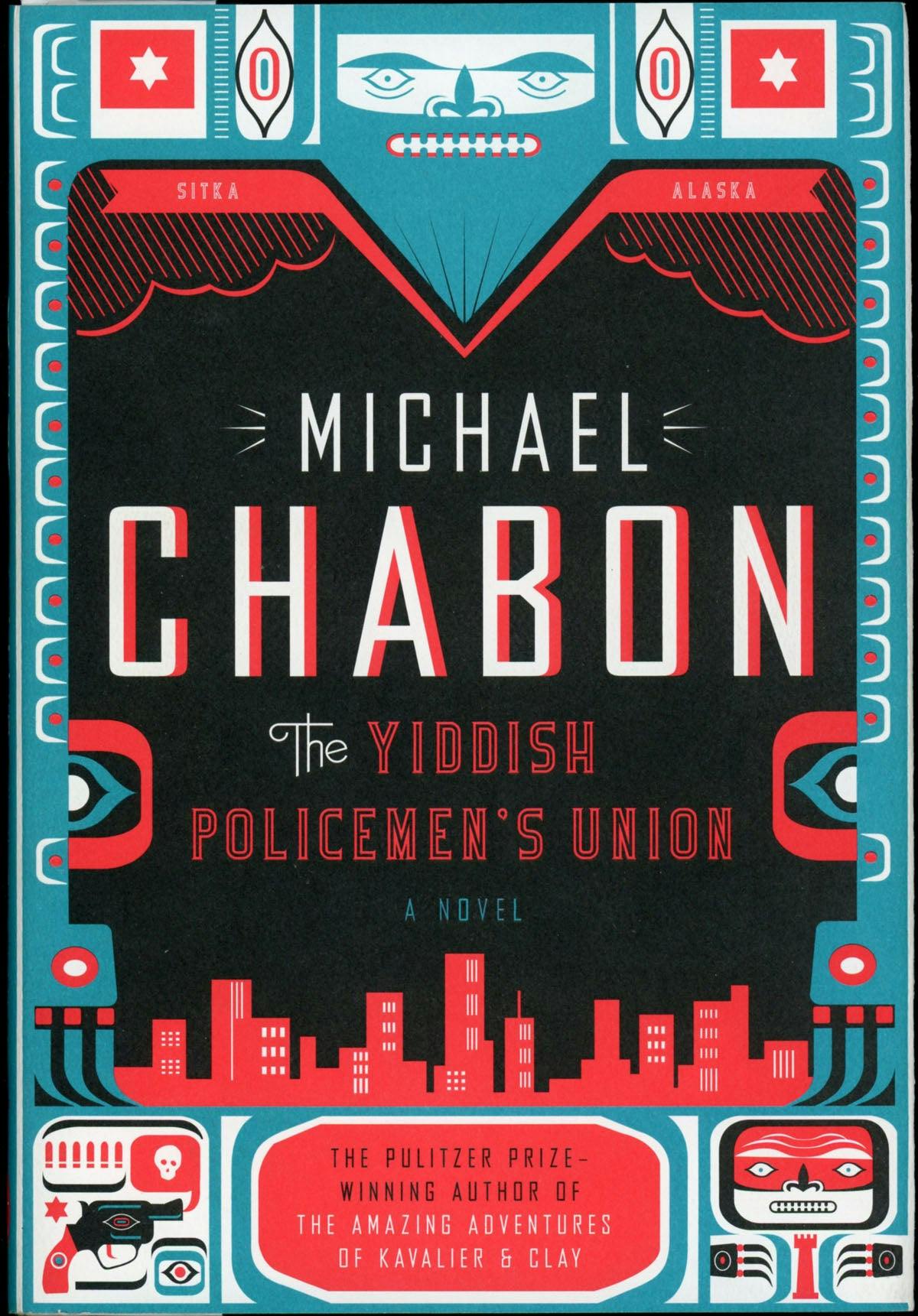
Amazon
Though it’s not the most famous episode of Star Trek: The Original Series, the excellent story of “The Conscience of the King” casts a mystery hating Captain Kirk in the role of hard-boiled detective. Michael Chabon’s second big mystery novel also takes place in an alternate universe. In this alternate-present, the town of Sitka, Alaska replaces the state of Israel as a refuge for Jews after WWII. A fantastic sci-fi setting plus pseudo-procedure whodunnit makes this a perfect novel for anyone who loves a good Star Trek mystery story.
“Vaulting Ambition” and “What’s Past is Prologue” — Gentlemen of the Road
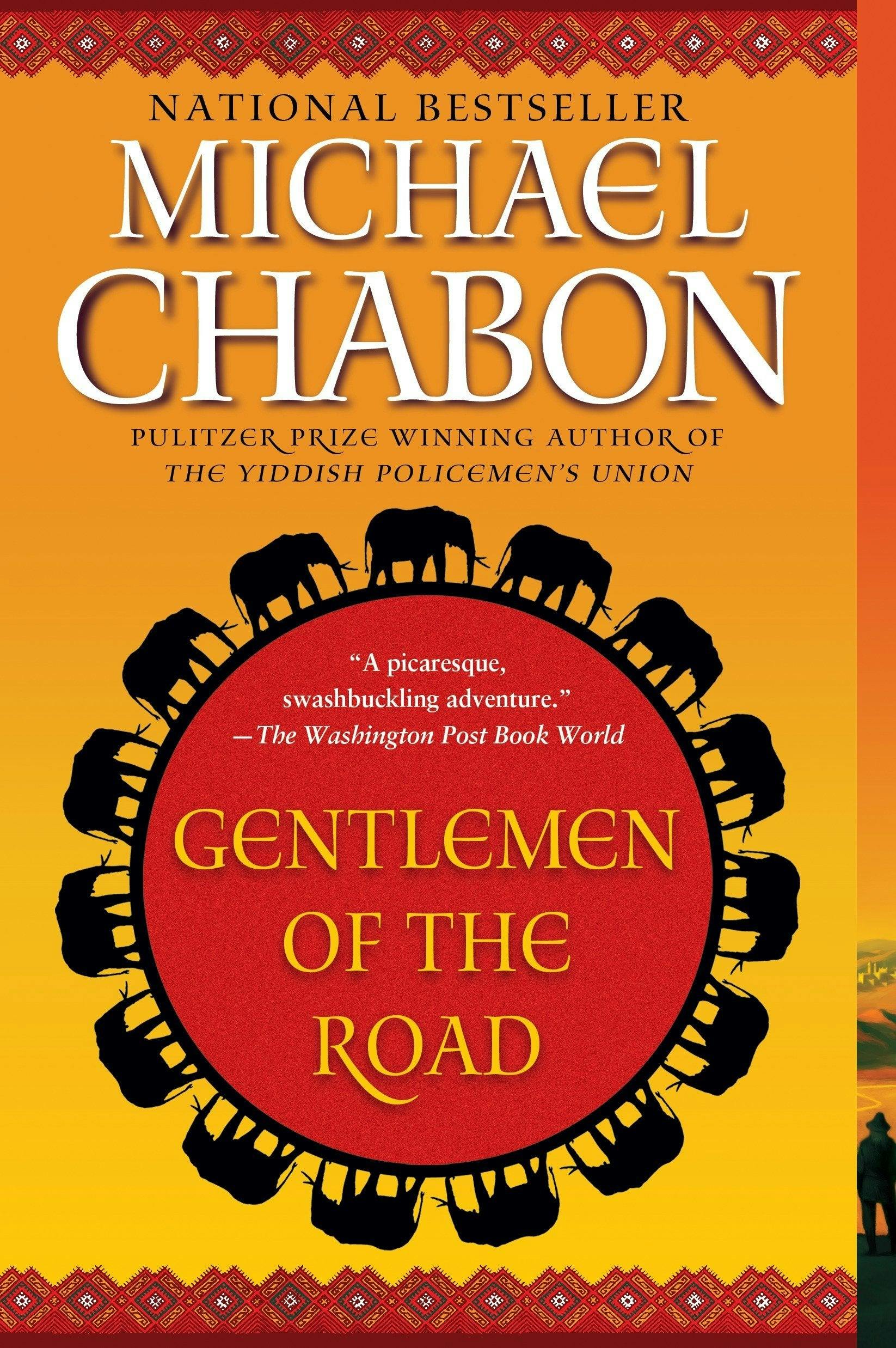
Amazon
Though I was tempted to pair The Yiddish Policeman’s Union with the Mirror Universe episodes from Star Trek: Discovery, the swashbuckling nature of the episodes “Vaulting Ambition” and “What’s Past Is Prologue” actually connect better to a different Chabon novel; Gentleman of the Road. This book focuses on the exploits of two Jewish bandits in the year 950 AD, both who eventually get themselves mixed-up in a full-blown rebellion to restore a Jewish Kingdom. In a sense, Michael Burnham and deposed Emperor Philippa Georgiou are fighting a similar rebellion in the Mirror Universe saga toward the end of Discovery's first season. If anything, the high-stakes action and sense of righteous struggle in Gentlemen of the Road totally matches up.
“Badda-Bing Badda-Bang” — Telegraph Avenue
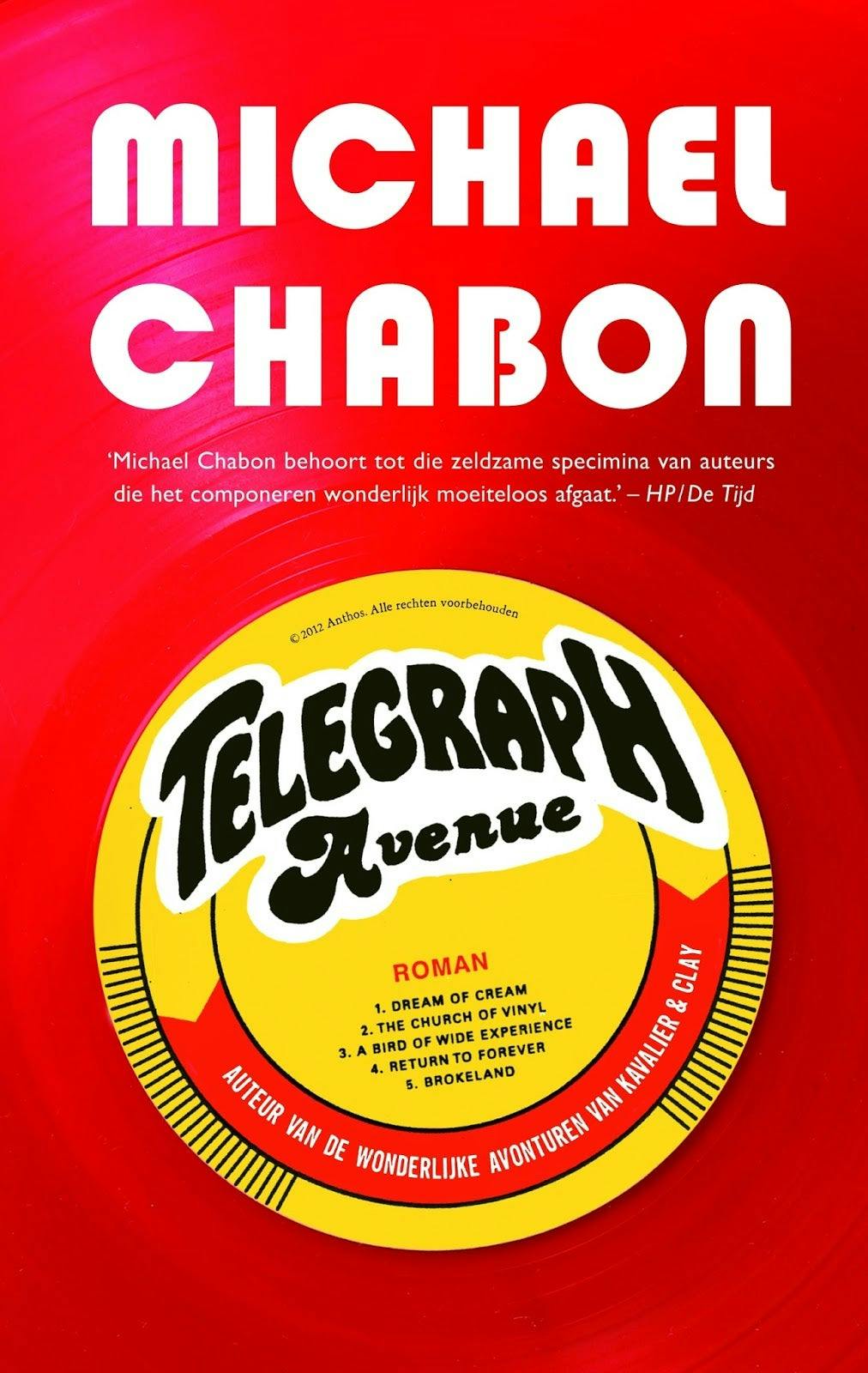
Amazon
On some level, the episode in which the crew of Deep Space Nine struggles to defend and preserve Vic Fontaine’s holographic casino could scan as a pretty light episode. And yet, it’s an episode that deals with gentrification, nostalgia and how we both perceive and preserve the past. For that reason, the Michael Chabon match here is Telegraph Avenue, which tells the tale of two business partners trying to keep a vinyl record shop called Brokeland Records in business in the face of a changing neighborhood. Like any Deep Space Nine episode featuring Vic Fontaine, Telegraph Avenue also moves and grooves with excellent references to music of the past. With Vic and DS9 it’s big band old standards, but with Telegraph Avenue it’s all jazz, baby.
“The Inner Light” — Moonglow
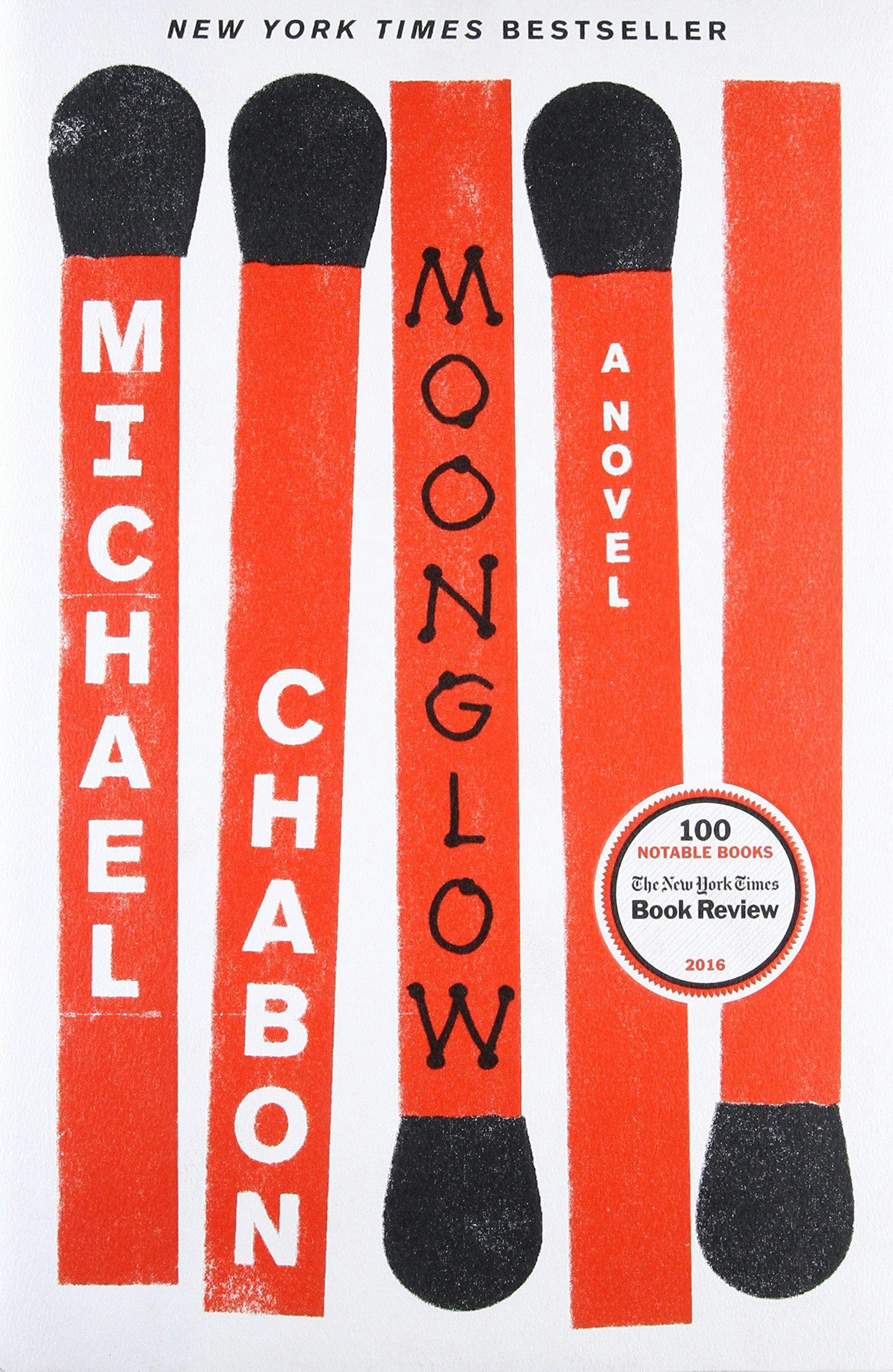
Amazon
“The Inner Light,” a beloved Next Generation episode — written by Morgan Gendel with Peter Allan Fields— is essential peerless among the very best of Star Trek episodes. Part of what makes the story so great is that it feels like a kind of science fiction version of a condensed memoir. When Captain Picard is contacted by an alien probe from the planet Katan, he experiences an entire lifetime in just twenty minutes. In Michael Chabon’s latest quasi-autobiographical novel, Moonglow, the hidden life of Chabon’s grandfather is revealed to the author as a series of deathbed confessions. In a sense, Michael Chabon’s Moonglow is the literary version of “The Inner Light,” only in this case, Chabon himself is Picard and his ailing grandfather is Picard’s alter-ego, Kamin, eager to impart a capsule of a lifetime for posterity of the next generation.
Ethan Peck Reads Too Many Tribbles
Ryan Britt's (he/him) essays and journalism have appeared in Tor.com, Inverse, Den of Geek!, SyFy Wire, and elsewhere. He is the author of the 2015 essay collection Luke Skywalker Can't Read. He lives in Portland, Maine, with his wife and daughter.
Star Trek: Picard will stream exclusively on Paramount+ in the United States, on Amazon Prime Video in more than 200 countries and territories and in Canada on Bell Media’s Space and OTT service Crave.

